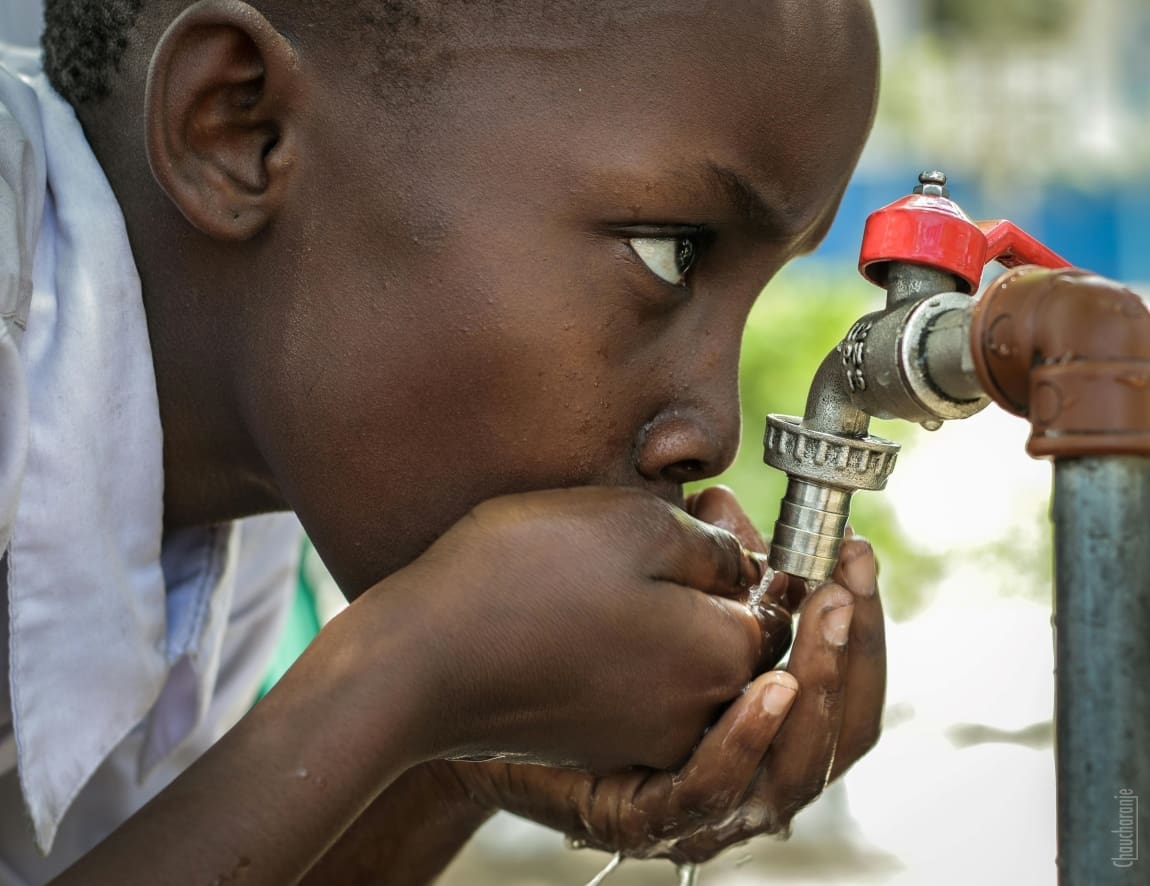An international group of leaders and experts has issued a warning that humanity must act urgently to address the global water crisis.
In a comprehensive report titled ‘The Economics of Water: Valuing the Hydrological Cycle as a Global Common Good’, the Global Commission on the Economics of Water highlights the severe economic and social consequences of an out-of-balance water cycle, which is exacerbated by climate change.

The report underscores that without bold and immediate action, over half of the world’s food production could be compromised by 2050, with potential losses of up to 8% of global GDP and as high as 15% in lower-income countries.
The Commission emphasizes that weak economic frameworks, destructive land use, and persistent water mismanagement have pushed the global water cycle to a breaking point. Nearly three billion people are living in areas with dwindling or erratic water supplies, which also threatens over half of the world’s food production. Additionally, the excessive extraction of groundwater is causing major cities to sink.
“Today, half of the world’s population faces water scarcity. As this vital resource becomes increasingly scarce, food security and human development are at risk – and we are allowing this to happen,” stated Johan Rockström, Director of the Potsdam Institute for Climate Impact Research and a co-chair of the Commission.
The report points out that the current approaches largely ignore the diverse values of water, both in supporting economic stability and preserving critical ecosystems. As a result, the underpricing of water encourages wasteful use and incentivizes the location of water-intensive industries, such as data centers and coal-fired power plants, in areas already experiencing water stress.
The Commission calls for a reassessment of water’s economic valuation and the implementation of targeted incentives, including subsidies, to promote more efficient, equitable, and sustainable water use.
A new economic framework for water
Ngozi Okonjo-Iweala, Director-General of the World Trade Organization and a Commission co-chair, emphasized the need to transform the economics of water: “The global water crisis is a tragedy but is also an opportunity to transform the economics of water – and to start by valuing water properly so as to recognize its scarcity and the many benefits it delivers.”
The report highlights the critical role of “green water” – the moisture in soil and plant life – in stabilizing rainfall patterns, which in turn supports both economies and livelihoods. By failing to account for green water and focusing only on visible “blue water” in rivers, lakes, and aquifers, current policies overlook an essential part of the hydrological cycle.
This fresh perspective on water calls for a significant reorientation in economic policies.
Mariana Mazzucato, Professor at University College London and a Commission co-chair, advocates for proactive market-shaping approaches that catalyze innovation and foster partnerships. “We must move beyond a reactive market-fixing approach toward a proactive market-shaping one that catalyzes mission-oriented innovation and builds symbiotic partnerships around our biggest water challenges,” she said.
The five missions for a sustainable water future
The Commission’s report outlines five urgent missions to reframe global water management:
- Revolutionizing food systems: Agricultural practices need radical transformation to improve water productivity. This includes scaling up micro-irrigation, reducing reliance on nitrogen-based fertilizers, and promoting plant-based diets.
- Restoring natural habitats: By 2030, countries should aim to conserve 30% of forests and restore 30% of degraded ecosystems, prioritizing those that contribute to a stable water cycle.
- Implementing a circular water economy: Treating and reusing wastewater, reducing inefficiencies in water distribution, and recovering valuable resources can help capture the full value of every drop.
- Supporting a clean-energy and AI-driven economy: The future of renewable energy and technology must be built with water sustainability in mind. Innovations in these sectors should be designed to reduce water intensity and support global water resources.
- Ensuring access to safe water for all: By 2030, no child should die from unsafe water. This mission aims to provide clean water access for rural and underserved communities through decentralized water treatment and sanitation systems.
Building a framework for water as a global common good
The report calls for a shift towards recognizing water as a global common good, necessitating a collective, international approach to governance.

Tharman Shanmugaratnam, President of Singapore and a Commission co-chair, remarked: “We can only solve this crisis if we think in much broader terms about how we govern water. By recognizing water’s interactions with climate change and biodiversity (…) So we not only save countless children’s lives and improve communities’ livelihoods today, but secure a much better and safer future everywhere.”
To support these missions, the Commission identifies several critical enablers, such as reforming water partnerships and governance structures, realigning finance to support a sustainable water future, leveraging data for informed decision-making, and building a Global Water Pact. These enablers aim to establish a multi-sectoral approach to addressing both green and blue water challenges, thereby stabilizing the global hydrological cycle.
The Global Commission on the Economics of Water urges policymakers, industry leaders, and communities to embrace a new mindset that values water beyond immediate economic returns. By aligning public and private sector initiatives, fostering innovation, and establishing international cooperation, it is possible to address the water crisis and safeguard the future of both people and the planet.
The report’s mission-driven approach underscores the need for urgent, coordinated action to manage the global water cycle as a critical component of human and economic wellbeing in an era of accelerating climate change.
Report:
Mazzucato, M., N. Okonjo-Iweala, J. Rockström and T. Shanmugaratnam, ’The Economics of Water: Valuing the Hydrological Cycle as a Global Common Good’, Global Commission on the Economics of Water, Paris (2024). Read and download the report here.
Featured image credit: Dii Nyau | Pexels




